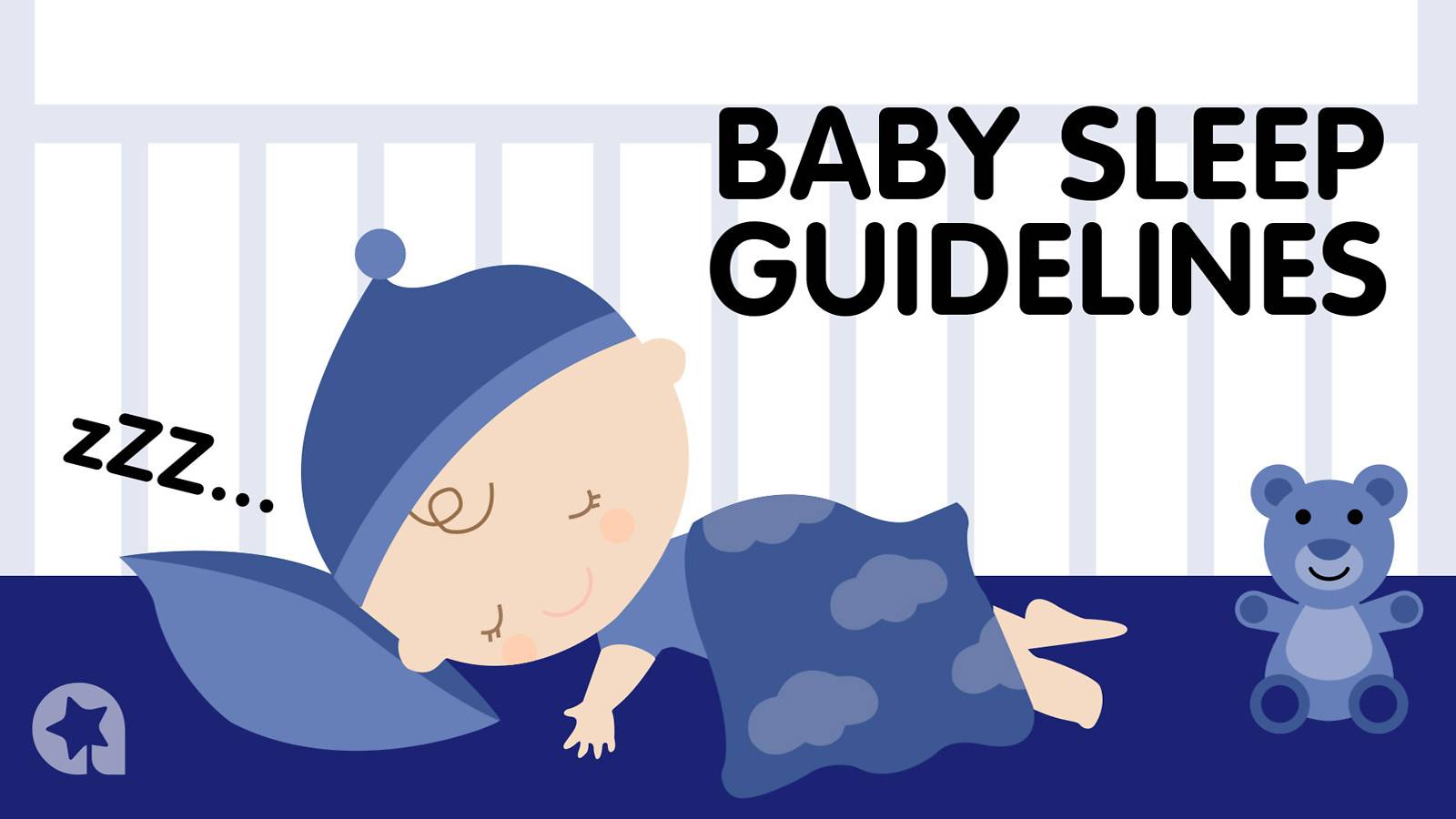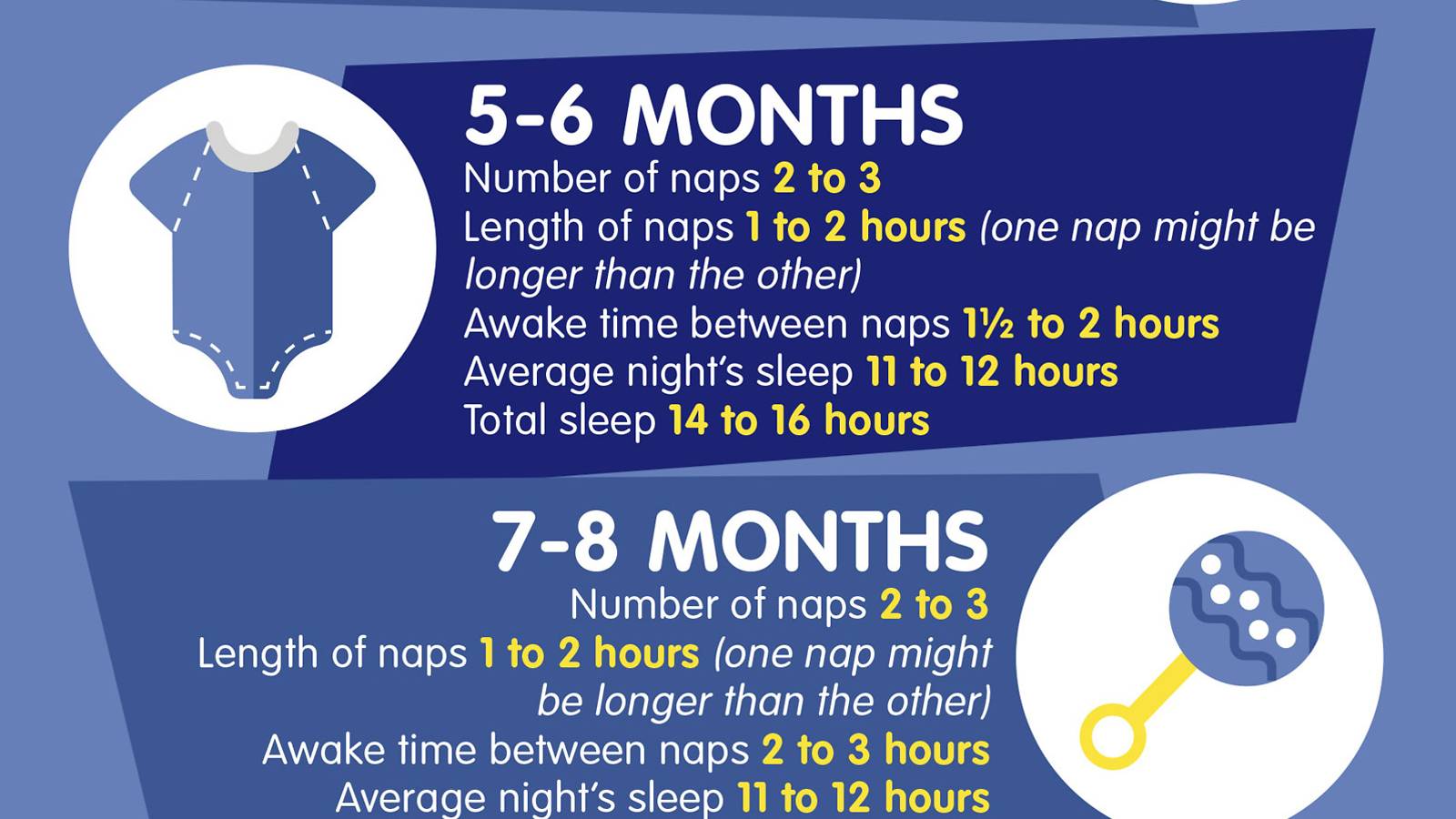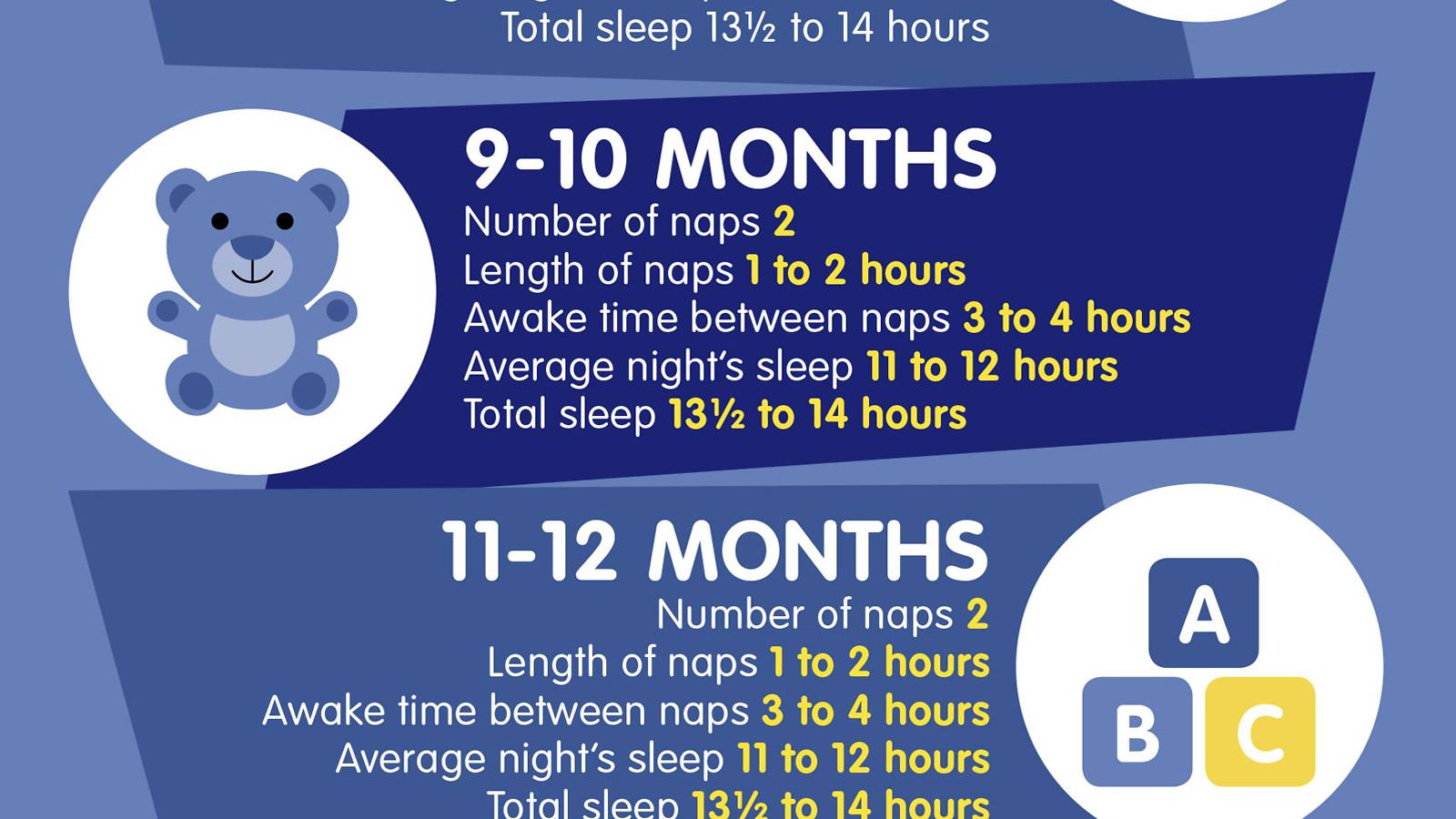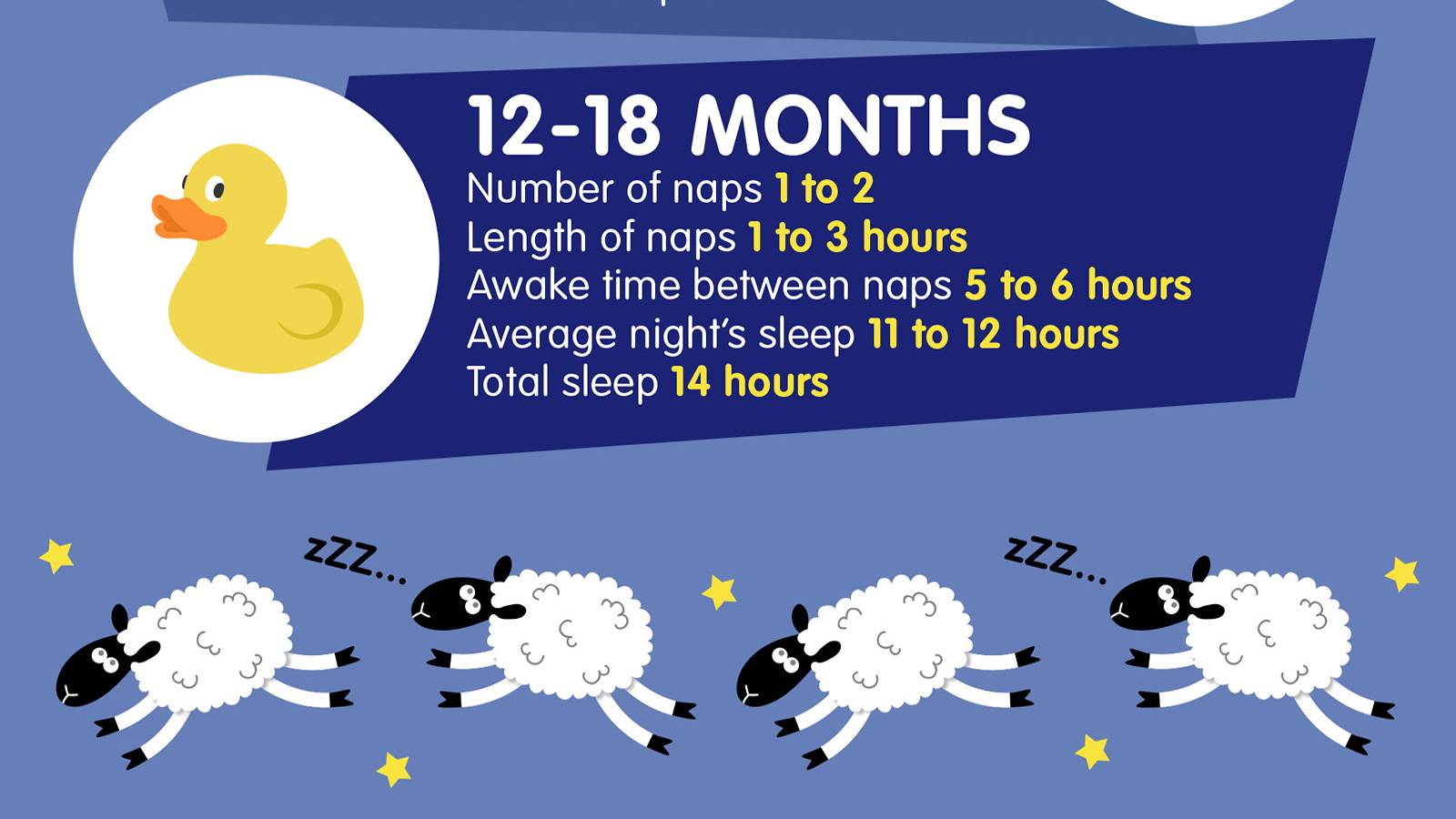Find out just how much sleep your munchkin needs, then follow this easy-to-use guide to manage bubba’s naptime needs.

Sleep is the one baby-related topic parents obsess over. Some of the many sleep questions that keep parents up at night include, “Is my newborn sleeping too much or too little?”, “How many naps should he take?” or “How do I get him to fall asleep on his own?”. And let’s not forget the Holy Grail of baby sleep, “When will my child sleep through the night?”.
Understanding infant sleep is key to figuring out how you can approach this issue, work out the snags, so as to encourage a more peaceful sleep rhythm. Here’s what you should know about your sweetie’s snooze operation…
Infographic: Paulyn Ng





1-2 MONTHS
Newly out of the womb and into the real world, your wee one has no concept of day and night. Junior’s sleep will be erratic at best ― she’ll clock an average of 18 hours a day, but never longer than two to three hours at a stretch, since she will need round-the-clock feeds.
3-4 MONTHS
Your little bundle will start developing his internal circadian rhythm ― the biological process that regulates periods of sleepiness and wakefulness throughout the day. She will start sleeping shorter spells during the day and longer at night, but still wake up frequently to drink milk. The quality of her sleep will also deepen.
5-6 MONTHS
If you’re very lucky, bubba might start sleeping through the night by six months. If she’s not and you want to encourage good bedtime habits, now is the time to start. Begin your bedtime routine an hour before you put her in her crib. Give her a shower followed by a soothing massage, sing lullabies as you give her a feed, then finish by reading her a bedtime story. Do this religiously every night ― babies thrive on routine and it will soon signal to her that bedtime is approaching.
7-8 MONTHS
Your cutie is going through major cognitive developments ― she might be sitting and pulling herself up, cruising or even attempting to take her first few steps. Junior has also started to take solids, is learning to communicate more and teething might be in full swing. It’s an exciting time, which means sleep is the last thing on her agenda. The eight-month sleep regression period is a trying time in a parent’s life. Expect short naps, multiple rousings at night and a super-cranky baby. This phase will pass, so don’t start any bad habits to help her sleep such as rocking, giving her a pacifier or co-sleeping (unless you are already doing it) as it’ll become a habit that’s hard to break later on.
9-10 MONTHS
Separation anxiety kicks in. You may notice your sweetie clinging to you like a limpet and melting down when you drop her off at daycare or her caregiver, or during sleep times.This can cause even the best sleeper to go off course. The best thing you can do is to keep things light and calm, even if junior is going berserk. If you seem anxious, you’re giving your tyke reason to feel alarmed at being left alone in the room. Stay relaxed and confident and it will also ease her anxiety. Your young ’un will also drop her third nap around this time.
11-12 MONTHS
It’s important to stick to a consistent routine at bedtime and for naps. This is because sleep begets sleep ― so, the better your tyke snoozes during the day, the better she’ll sleep at night. Shortening your little one’s naps doesn’t automatically mean that junior will enjoy better and more extended sleep during the night. In fact, very often, poor (or non-existent) naps could be the reason why she keep waking up at night. Do your best to schedule errands and activities around junior’s naps, so that you don’t disrupt her routine or she misses them as a result.
12-18 MONTHS
Brace yourself ― it’s time for the dreaded one nap transition! Unfortunately, this won’t happen overnight. In fact, she may take a couple of weeks (or months) to make a full transition. Be flexible and try alternating between one-nap and two-nap days, depending on how long the first one was. Try to push back nap time slowly, ideally to about noon or 1pm, so that your sweetie can have lunch and then go down for a solid 2 to 3 hour-long nap. Nothing more than that, otherwise she will have trouble falling asleep at her usual time in the evenings.
Like us on Facebook and check SmartParents regularly for the latest reads!
Other baby-sleep stories you may like…
8 guaranteed ways to make your baby sleep
Put baby on a routine or leave him?
Get baby to sleep a full night in 10 days
